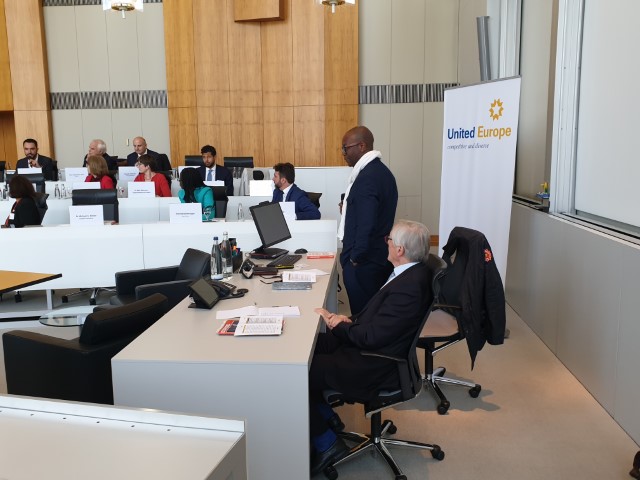In May, United Europe for the first time organised a CEO Roundtable focussing on the need for new European and African relations. The discussion took place in three sessions at ESMT Berlin. Here are the conclusions and recommendations:
• Europe needs to change its approach and attitude to Africa. Africa does not need aid but help for self-help. It is rich in natural resources and a young population with talented entrepreneurs and an emerging middle class.
• Africa needs fair trading relationships. The common agricultural policy has not been an example of fairness towards Africa at all.
• In order to convince young people to stay and engage in their country’s education and community building along the value chain need to be supported by various stakeholders.
• Focus on local sector investments next to foreign direct investment. 20 Million jobs which need to be created in Africa each year can only be created by the local sector.
• Connecting the new African generation closer with the younger generation of Europe.
• The “Fund Africa Connect” shall provide European SMEs an easier path for investment in Africa.
• Oblige big companies actively in Africa to install corporate citizenship to ensure that money is invested invested in the communities where they are producing their goods to close the gap.
• European development financing should develop a more coherent European approach, accompanied by effective working country platforms and take 1 percent of this amount and create a fund that invests in African SMEs. In addition, European involvement comes with good governance, environmental and social standards, that are crucial features for every investment.
• Development of job creation and training for private investment knowledge.
• The pension funds of Africa today are over 400 billion US dollars and growing fast. So, the chance that social security in the European sense can be achieved in Africa is possible.
• Establishing a system in Brussels as one focal point for Africa, for example a commissioner on Africa, who is responsible for foreign policy, trade competences, development assistance etc.
• More focus on Europe’s and Africa’s business interests. We need to use the financial instruments to guarantee facilities not only for local business but also European business and joint ventures.
• The extension of the EBRD mandate. The EBRD, which has a mandate for North Africa, has lost 50 % of their profits due to the sanctions on Russia. This could be a chance to focus on new business and new areas in Africa. The EBRD has an excellent toolset for advising SMEs in establishing good relations with civil society and that is exactly needed in these countries (unfortunately stake- and shareholders of EBRD recently didn’t agree to that).
• We have to understand the Chinese and their goals to 2049 to understand the BRI and their Africa strategy. If we cannot beat China, we should join them. For instance, by building value chains and using their infrastructure.
• European private and public sectors are investing six times more in Africa than China. But nobody knows it because every European country is investing under its own flag. If we use the European flag consequently, additionally to the national flags, we can make the European engagement more visible and get a European investment brand in Africa.
• Rename the Marshall Plan to Africa into EASI: European African Sustainable Investment.
The whole summary of the discussion is to be found here.



